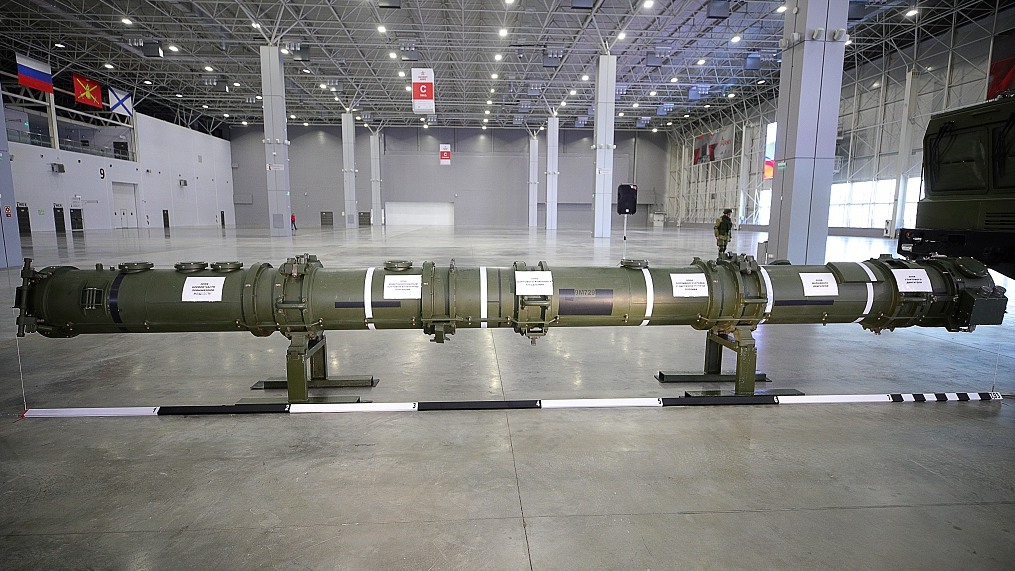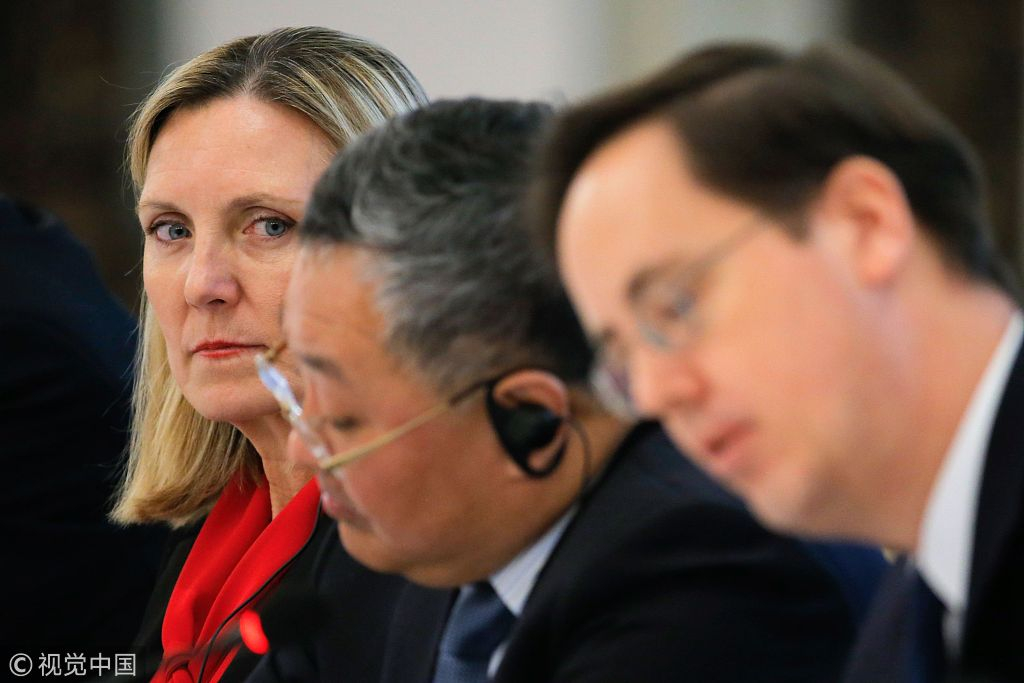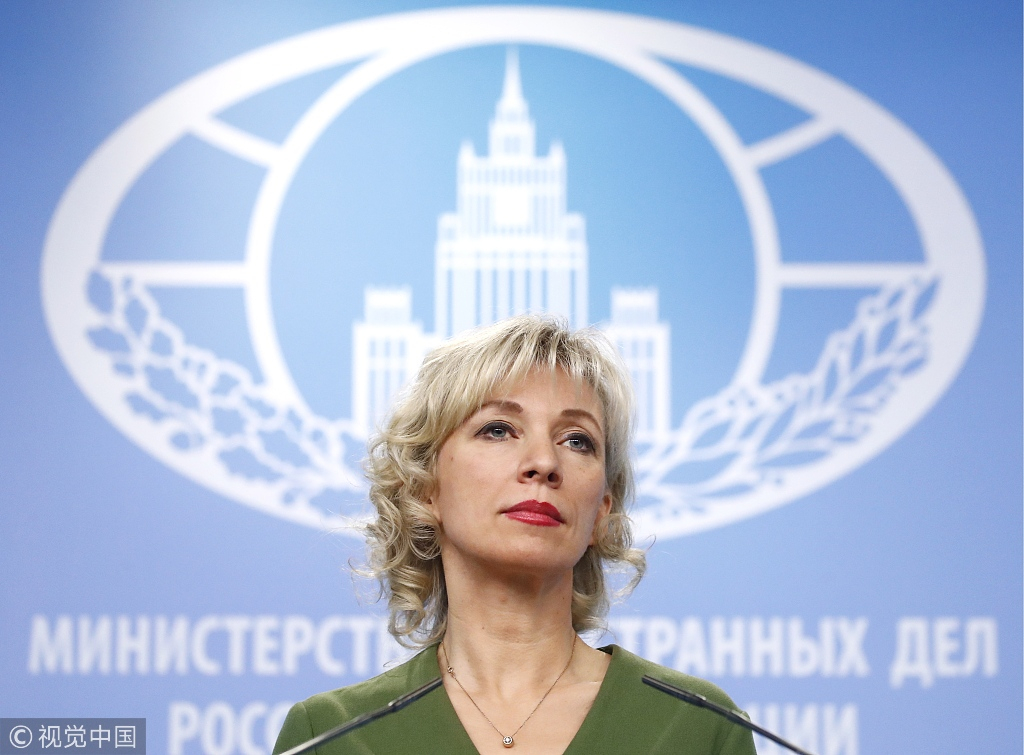
Opinion
17:26, 01-Feb-2019
INF Treaty: Which way forward?
Updated
20:06, 01-Feb-2019
Richard Weitz

Editor's note: Richard Weitz is a senior fellow and director of the Center for Political-Military Analysis at the Hudson Institute. The article reflects the author's opinion, and not necessarily the views of CGTN.
Despite their diverging speeches at this week's Beijing meeting of the P5 — the five nuclear weapons states recognized by the Treaty on the Non-Proliferation of Nuclear Weapons (NPT) — Russian and U.S. nuclear arms control diplomats do at least agree on one point: the Intermediate-Range Nuclear Forces (INF) Treaty is dead. They might soon also appreciate that their preoccupation with resurrecting the treaty has been impeding their consideration of other important arms control issues.
This weekend marks the end of the 60-day deadline that U.S. Secretary of State Mike Pompeo announced on December 4 for Russia to return to compliance with the INF treaty. The accord prohibits the U.S. and the Soviet Union from possessing, producing, or flight testing ground-launched ballistic or cruise missiles having ranges between 500 and 5,500 kilometers, or from producing or possessing launchers for these kinds of missiles.

Delegation members from the UN Security Council's five permanent members, Andrea Thompson of the U.S. (L), Fu Cong of China and Nicolas Roche of France (R), attend a panel discussion after the Treaty on the Non-Proliferation of Nuclear Weapons (NPT) conference in Beijing on January 31, 2019. /VCG Photo
Delegation members from the UN Security Council's five permanent members, Andrea Thompson of the U.S. (L), Fu Cong of China and Nicolas Roche of France (R), attend a panel discussion after the Treaty on the Non-Proliferation of Nuclear Weapons (NPT) conference in Beijing on January 31, 2019. /VCG Photo
For almost a decade, the U.S. has assessed that Russia has been testing a ground-launched cruise missile within the range prohibited by the treaty. U.S. officials spent several years confirming their concerns, then communicated privately to their Russian counterparts, and finally formally charging Moscow with violating the treaty.
The Russian government has persistently denied the U.S. accusations. However, these characterizations of Moscow's behavior have continued under both Barack Obama and the Donald Trump administration, been regularly endorsed by the Congress, and secured by the formal endorsement of NATO.
After Washington began publicizing its concerns about Moscow's violations, Russian government officials started making their own accusations. They charged that the Pentagon was illegally employing long-range unmanned strike drones, testing intermediate-range booster rockets as ballistic missile defense (BMD) targets, and configuring U.S. BMD systems in Central Europe in a way that the Pentagon could rapidly swap out their unarmed missile interceptors with intermediate-range missiles.
Moscow's true feelings towards the INF Treaty were clearer a decade ago when Russia's high officials said that they no longer saw much value in adhering to the accords. On several occasions, Russian President Vladimir Putin has characterized the Soviet officials who agreed to the treaty as de facto traitors for relinquishing the superior Soviet INF arsenal. Since then, he and other Russians have often complained how the treaty restricts Russia more than the U.S. since dozens of countries have acquired INF-range missiles that can attack the Soviet Union while the U.S. homeland does not face equivalent threats in the more peaceful Western Hemisphere.

Russian Foreign Ministry Spokesperson Maria Zakharova gives a briefing on Russia's current foreign policy and international relations. January 31, 2019. /VCG Photo
Russian Foreign Ministry Spokesperson Maria Zakharova gives a briefing on Russia's current foreign policy and international relations. January 31, 2019. /VCG Photo
It is hardly surprising that Moscow and Washington were unable to resolve these wide differences at this week's P5 meeting. Dozens of formal encounters between Russian and U.S. experts and officials, including two formal sessions of the treaty's Special Verification Commission, have failed to overcome their disagreements. For years, Russian and U.S. arms control specialists have also been holding fruitless encounters on the issue.
Furthermore, the accord's overly narrow focus on Russian and U.S. intermediate-range missiles has contributed to its losing relevance in a world of multiple missile powers and of novel technologies whose destabilizing strategic impact arguably exceed those of ballistic missiles.
The challenge — and opportunity — now is for U.S. and Russian officials, along with their Chinese and other foreign partners, to recognize the INF Treaty as a lost cause and instead strive to redirect the arms control enterprise in more productive directions.
(If you want to contribute and have specific expertise, please contact us at opinions@cgtn.com)

SITEMAP
Copyright © 2018 CGTN. Beijing ICP prepared NO.16065310-3
Copyright © 2018 CGTN. Beijing ICP prepared NO.16065310-3